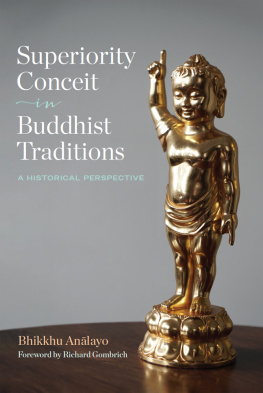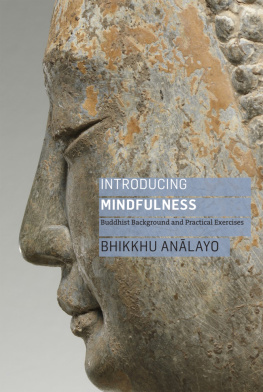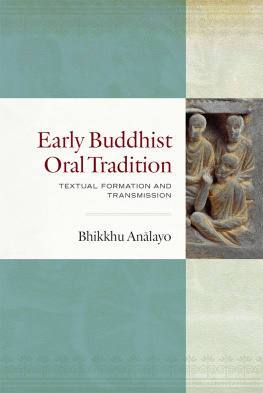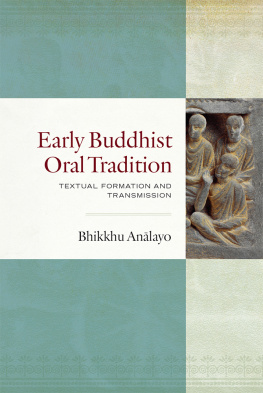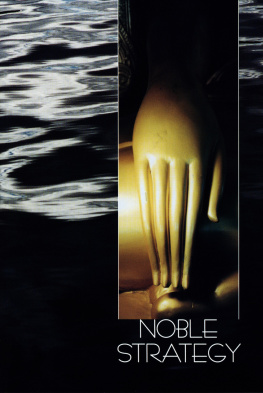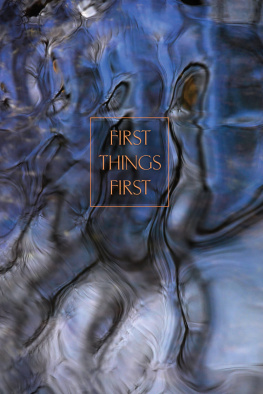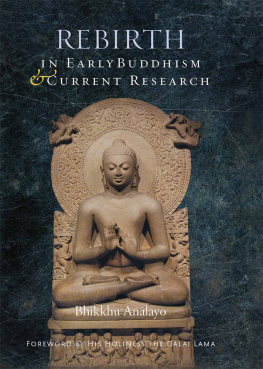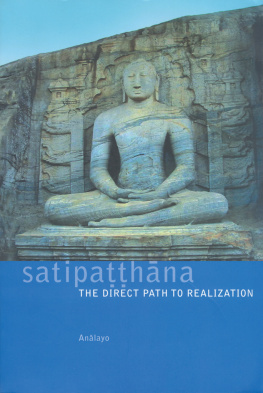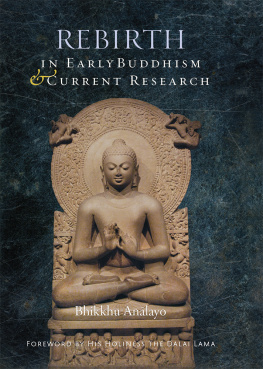Bhikkhu Analayo - Superiority Conceit in Buddhist Traditions
Here you can read online Bhikkhu Analayo - Superiority Conceit in Buddhist Traditions full text of the book (entire story) in english for free. Download pdf and epub, get meaning, cover and reviews about this ebook. publisher: Wisdom Publications, genre: Religion. Description of the work, (preface) as well as reviews are available. Best literature library LitArk.com created for fans of good reading and offers a wide selection of genres:
Romance novel
Science fiction
Adventure
Detective
Science
History
Home and family
Prose
Art
Politics
Computer
Non-fiction
Religion
Business
Children
Humor
Choose a favorite category and find really read worthwhile books. Enjoy immersion in the world of imagination, feel the emotions of the characters or learn something new for yourself, make an fascinating discovery.
- Book:Superiority Conceit in Buddhist Traditions
- Author:
- Publisher:Wisdom Publications
- Genre:
- Rating:4 / 5
- Favourites:Add to favourites
- Your mark:
- 80
- 1
- 2
- 3
- 4
- 5
Superiority Conceit in Buddhist Traditions: summary, description and annotation
We offer to read an annotation, description, summary or preface (depends on what the author of the book "Superiority Conceit in Buddhist Traditions" wrote himself). If you haven't found the necessary information about the book — write in the comments, we will try to find it.
Superiority Conceit in Buddhist Traditions — read online for free the complete book (whole text) full work
Below is the text of the book, divided by pages. System saving the place of the last page read, allows you to conveniently read the book "Superiority Conceit in Buddhist Traditions" online for free, without having to search again every time where you left off. Put a bookmark, and you can go to the page where you finished reading at any time.
Font size:
Interval:
Bookmark:
BHIKKHU ANLAYO is a scholar of early Buddhism and a meditation teacher.
I AM INDEBTED to Chris Burke, Bhikkhun Dhammadinn, Richard Gombrich, Linda Grace, Bhikkhu U Jgara, and Yuka Nakamura for commenting on a draft version of this study or part of it.
Scholars within the academic discipline of Buddhist studies have long benefited from Bhikkhu Anlayos many careful and excellent studies of early Buddhist thought, based on a comparative reading of the available sources. Now, he makes the results of his many years of research available in an accessible and highly personal form: an impassioned plea to his fellow Buddhists to recognize their conceitthat is, their feelings of superiority over their fellow Buddhistsand its utter inconsistency with the core teachings of the Buddhist tradition. This slim volume will provide much food for thought for scholars and Buddhist practitioners alike. Highly recommended.
REIKO OHNUMA, professor and chair,
Department of Religion, Dartmouth College
Intellectually sharp and deeply penetrating, Bhikkhu Anlayo unveils different manifestations of conceit in the name of Buddhism. Drawing from his extensive and detailed research on a manifold of topics of the early Buddhist traditions, Anlayo deconstructs and unmasks what has often been taken as a matter of course by the heirs of the Buddha: that women are not entitled to take the same role as men in the Buddhist community, that the followers of the Great Vehicle have a morally higher standing than those of the old schools, that the Pli tradition of the southern Buddhists is the only true guardian of the Buddhist tradition, and that the new and secular forms of Buddhism in the West are the peak of perfection of 2,500 years of Buddhist history. Anlayo poignantly shows how conceit is present in Buddhist practices and practitioners and how it hinders the realization of a truly Buddhist vision in the world. It is this powerful critique from inside the Buddhist community, based on accurate analyses along historical and philological lines, that makes Bhikkhu Anlayos book so powerful and evocative.
PROFESSOR MICHAEL ZIMMERMANN,
Numata Center for Buddhist Studies, Hamburg University
Join Wisdoms mailing list and find out what to read next!
Receive the latest news and updates from Wisdom, including new releases and special offers.
Click here to sign up.

Anlayo. 2003. Satipahna: The Direct Path to Realization. Birmingham: Windhorse Publications. https://www.buddhismuskunde.uni-hamburg.de/pdf/5-personen/analayo/direct-path.pdf
2005. The Seven Stages of Purification in Comparative Perspective. Journal of Buddhist Studies 3: 12638. https://www.buddhismuskunde.uni-hamburg.de/pdf/5-personen/analayo/seven-stages-purif.pdf
2009a. The Treaties on the Path to Liberation () and the Visuddhimagga. Fuyan Buddhist Studies 4: 115. https://www.buddhismuskunde.uni-hamburg.de/pdf/5-personen/analayo/treatise-path-liberation.pdf
2009b. Yodhjva Sutta. In Encyclopaedia of Buddhism, Volume 8, edited by W.G. Weeraratne, 79899 . Sri Lanka: Department of Buddhist Affairs. https://www.buddhismuskunde.uni-hamburg.de/pdf/5-personen/analayo/encyclopedia-entries/yodhajiva.pdf
2010a. From Grasping to EmptinessExcursions into the Thought-World of the Pli Discourses (2). New York: Buddhist Association of the United States. https://www.buddhismuskunde.uni-hamburg.de/pdf/5-personen/analayo/from-grasping.pdf
2010b. The Genesis of the Bodhisattva Ideal. Hamburg: Hamburg University Press. https://www.buddhismuskunde.uni-hamburg.de/pdf/5-personen/analayo/genesis-bodhisattva.pdf
2011. A Comparative Study of the Majjhima-nikya. Taipei: Dharma Drum Publishing Corporation. https://www.buddhismuskunde.uni-hamburg.de/pdf/5-personen/analayo/compstudyvol1.pdf; https://www.buddhismuskunde.uni-hamburg.de/pdf/5-personen/analayo/compstudyvol2.pdf
2012a. The Dynamics of Theravda Insight Meditation. In [Buddhist Meditation Traditions: An International Symposium], edited by Kuo-pin Chuang, 2356. Taiwan: Dharma Drum Publishing Corporation. https://www.buddhismuskunde.uni-hamburg.de/pdf/5-personen/analayo/dynamicsinsight.pdf
2012b. Madhyama-gamaStudies. Taipei: Dharma Drum Publishing Corporation. https://www.buddhismuskunde.uni-hamburg.de/pdf/5-personen/analayo/mastudies.pdf
2012c. Purification in Early Buddhist Discourse and Buddhist Ethics. Bukky Kenky 40: 6797. https://www.buddhismuskunde.uni-hamburg.de/pdf/5-personen/analayo/purification-in-early-buddhist-discourse.pdf
2013a. The Chinese Parallels to the Dhammacakkappavattana-sutta (2). Journal of the Oxford Centre for Buddhist Studies 5: 941. https://www.buddhismuskunde.uni-hamburg.de/pdf/5-personen/analayo/dhammacakka2.pdf
2013b. Perspectives on Satipahna. Cambridge: Windhorse Publications. https://www.buddhismuskunde.uni-hamburg.de/pdf/5-personen/analayo/perspectives.pdf
2014a. On the Bhikkhun Ordination Controversy. Sri Lanka International Journal of Buddhist Studies 3: 120. https://www.buddhismuskunde.uni-hamburg.de/pdf/5-personen/analayo/bhikkhuni-controversy.pdf
2014b. The Dawn of Abhidharma. Hamburg: Hamburg University Press. https://www.buddhismuskunde.uni-hamburg.de/pdf/5-personen/analayo/dawn-abhidharma.pdf
2015a. Compassion and Emptiness in Early Buddhist Meditation. Cambridge: Windhorse Publications. https://www.buddhismuskunde.uni-hamburg.de/pdf/5-personen/analayo/compassionemptiness.pdf
2015b. Compassion in the gamas and Nikyas. Dharma Drum Journal of Buddhist Studies 16: 130. https://www.buddhismuskunde.uni-hamburg.de/pdf/5-personen/analayo/compassion.pdf
2015c. The Cullavagga on Bhikkhun Ordination. Journal of Buddhist Ethics 22: 40148. https://www.buddhismuskunde.uni-hamburg.de/pdf/5-personen/analayo/cullavagga.pdf
2015d. Sayukta-gamaStudies. Taipei: Dharma Drum Publishing Corporation. https://www.buddhismuskunde.uni-hamburg.de/pdf/5-personen/analayo/sastudies.pdf
2016a. Ekottarika-gamaStudies. Taipei: Dharma Drum Publishing Corporation. https://www.buddhismuskunde.uni-hamburg.de/pdf/5-personen/analayo/ekottarikastudies.pdf
2016b. The Foundation History of the Nuns Order. Bochum: Projektverlag. https://www.buddhismuskunde.uni-hamburg.de/pdf/5-personen/analayo/foundation.pdf
2016c. MindfullyFacing Disease and Death: Compassionate Advice from Early Buddhist Texts. Cambridge: Windhorse Publications. https://www.buddhismuskunde.uni-hamburg.de/pdf/5-personen/analayo/climate.pdf
2017a. Buddhapada and the Bodhisattva Path. Bochum: Projektverlag. https://www.buddhismuskunde.uni-hamburg.de/pdf/5-personen/analayo/buddhapada.pdf
2017b. Drgha-gamaStudies. Taipei: Dharma Drum Publishing Corporation. https://www.buddhismuskunde.uni-hamburg.de/pdf/5-personen/analayo/dastudies.pdf
2017c. Early Buddhist Meditation Studies. Barre: Barre Center for Buddhist Studies. https://www.buddhismuskunde.uni-hamburg.de/pdf/5-personen/analayo/ebms.pdf
2017d. How Compassion Became Painful. Journal of Buddhist Studies 14: 85113. https://www.buddhismuskunde.uni-hamburg.de/pdf/5-personen/analayo/compassionpainful.pdf
2017e. The Luminous Mind in Theravda and Dharmaguptaka Discourses. Journal of the Oxford Centre for Buddhist Studies 13: 1051. https://www.buddhismuskunde.uni-hamburg.de/pdf/5-personen/analayo/luminousmind.pdf
2017f. A Meditators Life of the Buddha: Based on the Early Discourses. Cambridge: Windhorse Publications.
Font size:
Interval:
Bookmark:
Similar books «Superiority Conceit in Buddhist Traditions»
Look at similar books to Superiority Conceit in Buddhist Traditions. We have selected literature similar in name and meaning in the hope of providing readers with more options to find new, interesting, not yet read works.
Discussion, reviews of the book Superiority Conceit in Buddhist Traditions and just readers' own opinions. Leave your comments, write what you think about the work, its meaning or the main characters. Specify what exactly you liked and what you didn't like, and why you think so.

